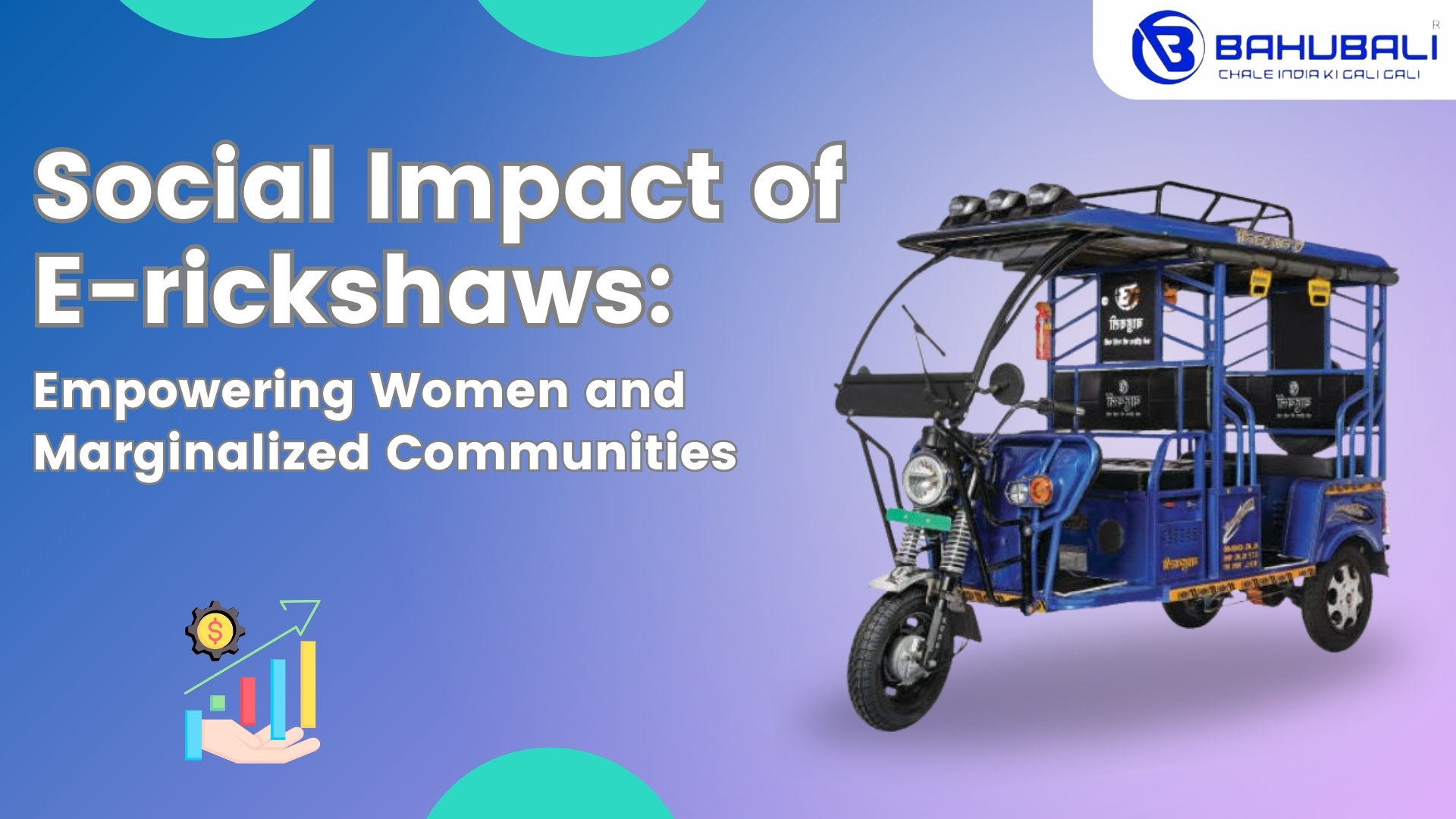
The spread of e-rickshaws in developing countries is causing a silent revolution, one that goes beyond just being eco-friendly transport. These three-wheeled electric vehicles are turning into strong instruments for social change, especially benefiting women and neglected groups. Now we will study the changing effects of e-rickshaws on society, how they are altering lives and questioning old social standards.
E-rickshaws are becoming a game-changer in many societies where women have been restricted from moving around and working, especially places with historical limits on their mobility and employment opportunities. Operation is easy, less physical stress than normal cycle rickshaws, and the relatively small starting cost make driving an e-rickshaw a profession open to women. Places such as Delhi or Lucknow see rising popularity for services that offer only female e-rickshaw rides. This gives safe transportation choices to ladies passengers while also creating work chances for lady drivers at the same time.
E-rickshaws can be seen as a way towards economic freedom for many communities who are pushed to the edges. The quite low starting cost and running expenses make them attractive for people with not much money. As an example in Bangladesh, government has started giving e-rickshaws to earlier manual rickshaw pullers who mostly belong from disadvantaged communities historically speaking.
The transformation is shown through the story of Kamal, a former manual rickshaw puller from Dhaka. He used to suffer greatly from the physical effort needed for pulling traditional rickshaws and could barely earn enough money to survive each day. However, when he began driving an e-rickshaw, his physical burden lessened considerably and he started making twice as much money every day. This extra money has made it possible for Kamal to send his children to school, ending the long history of poverty in his family.
E-rickshaws are important for improving movement opportunities for people with disabilities. This is especially true in places where public transportation that accommodates them is not very available. The structure of e-rickshaw, having low floor and simple entrance, makes it perfect for passengers who face difficulties in moving around. In certain cities, there have been e-rickshaws modified specifically which have ramps included to let wheelchair users on board – this offers an unmatched sense of freedom to those individuals who were unable leave their houses before (Source: 2019).
The effect of this enhanced movement extends farther than just making life easier. E-rickshaws have given fresh opportunities for education and occupation to many people with disabilities. Let’s consider Arjun, a young man who has partial paralysis living in a small town of Nepal. Finding the solution to transportation difficulties: The arrival of e-rickshaws that could be easily reached in his locality permitted him to travel every day for vocational training to a city close by, which was not feasible before due to problems with getting transportation.
E-rickshaws are unexpectedly creating a feeling of community and social unity. In certain regions, informal groups have formed among e-rickshaw drivers who exchange details on paths to take, maintenance tricks, and even money-related suggestions. These groups often go beyond typical social divisions to unite people from various backgrounds.
In Jaipur, India, there is a cooperative made by e-rickshaw drivers. These drivers come from many different castes and religions. This group helps each other and plans activities for the community like giving free rides to old people on weekends. This act has played a part in erasing social divides between different groups while also creating solidarity among members of this community.
As ambassadors for clean transportation, the rise of e-rickshaw drivers is also starting up discussions about environmental matters at the bottom level. Several drivers who did not come from backgrounds where they considered environment issues as a priority are now getting involved in talking about things like air pollution, renewable energy and how to live sustainably.
The social influence of e-rickshaws goes much further than just being a means for transportation. These electric three-wheelers are tools that give power, they initiate economical progress and cause alterations in society. As these vehicles keep spreading, they don’t just change city movement – they also modify societies by questioning customs and preparing the path towards a better future that includes everyone while being sustainable too.